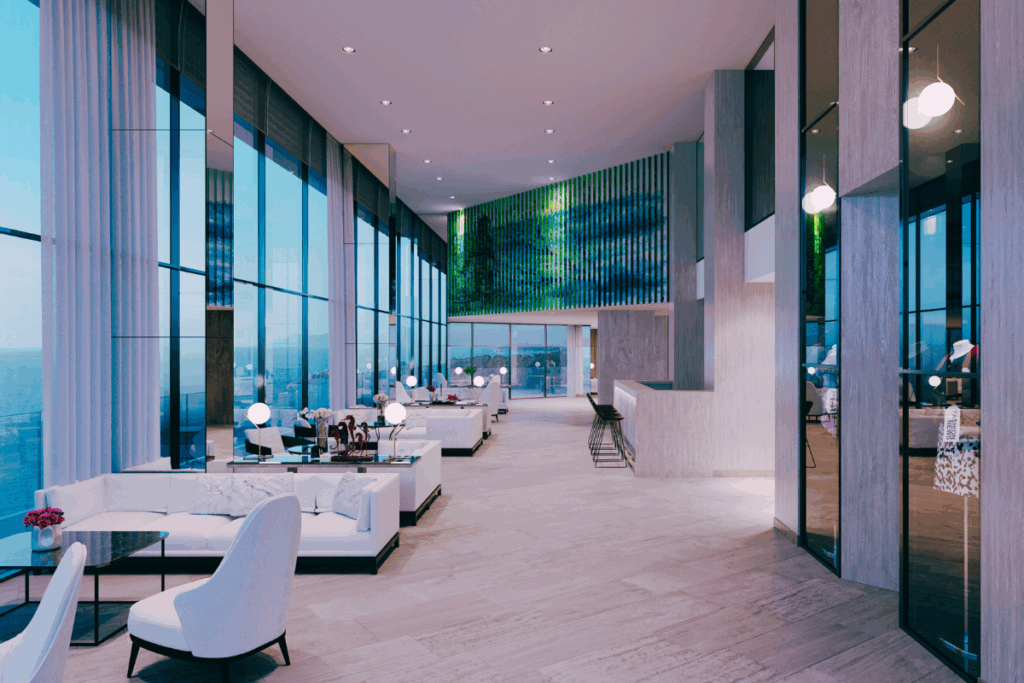What if TMCs treated hotels as experiences worth optimising?
It’s 1pm in Manhattan and “Dave” is watching hotel prices like a stock trader watches the NASDAQ…
The Hyatt he’s eyeing sits at $400. By 3pm, it’s down to $380; at 5pm, it’s $300. And by 6pm — when the window of sales opportunity is almost closed — $280.
“Desperation breeds discounts,” Dave tells me, describing one of his occasional pricing experiments on low-occupancy nights in one of the world’s most expensive hotel markets.
Dave’s a seasoned business traveller who’s figured out Manhattan’s hotel pricing rhythms; I’m keeping him anonymous so his favourite hotels don’t start giving him funny looks at check-in.
A Hyatt Globalist, he’s particular about where he stays. And with economic uncertainty affecting travel budgets, his insights into hotel pricing pressure are becoming more relevant by the day.
"So, how's your hotel room?"
It’s often the first question that comes up when people talk about business trips.
For young professionals, walking into a new hotel comes with a little thrill of discovery. For seasoned road warriors, it’s about familiarity and comfort – their home away from home.
Business accommodation is simply an entirely different emotional and functional category to air travel.
As HotelHub’s chief commercial officer, Paul Raymond put it to me, “A flight is functional – you’re getting from A to B. I mean, who can actually enjoy sitting on a plane? You’re cramped, you can’t move, the food is terrible. Accommodation? That’s where you live. It’s the experience — the room, the lobby, the service, the location, how it makes you feel when you walk in.”
Never one to miss an opportunity to reference his favourite football team, he then shared a recent news story that captured this perfectly:
“Manchester United’s been having a terrible season — losing matches, cutting staff, even making players pay for their own meals — but do you know what has apparently upset the team most? Having to switch to Marriott from their usual luxury hotels.
Out of everything going wrong at the club, it was the hotel downgrade that really got to them!”

We're all precious about where we stay
A few weeks ago, I wrote about why business travel agents struggle with hotel bookings. As expected, there was plenty of talk about legacy systems and workflows, but what emerged underneath was something more fundamental: business travellers are emotionally invested in their accommodation in ways TMC processes just don’t account for.
Think about the difference in planning: flights are transactions — you spend five minutes booking; you’ve got limited options, perhaps a preferred airline; and then you’re done.
Hotels, on the other hand, take real research.
The research reality
You’re cross-referencing Google Maps with hotel photos. You’re checking proximity to client meetings, making sure you’re not stranded in a business district wasteland after 6pm.
You’re evaluating whether that room is big enough for morning Zooms and if the complimentary breakfast will save you from ordering overpriced room service at 11pm.
You’re juggling brand loyalty, lobby aesthetics and whether the gym has more than one sad treadmill. Is the business centre functional or just a dusty desktop in a corner?
You may also be wondering is this hotel aligned with our sustainability commitments? Will the Wi-Fi work for my 7am call with London? Would I feel comfortable hosting a client here?
Each of these questions equates to time, energy and decision fatigue — but they also represent an opportunity for a TMC to add value to a traveller. How many Daves are out there running their own accommodation experiments and would welcome the intervention of a professional who understood their pursuit of the business hotel that hits all the right spots?

The timing opportunity
The results of Dave’s Manhattan pricing experiment — from $400 to $280 in five hours — is a timely reminder that dynamic pricing is becoming more aggressive. What if TMCs could harness this volatility instead of resisting it?
Conventional wisdom says book hotels early, just like flights. But Dave’s experiments suggest a different reality: hotel prices often reward those who wait.
Yet many TMCs still attempt to attach hotels at the time of air booking, often weeks or months in advance, creating friction between how TMCs want to manage bookings and how savvy travellers are actually making them.
What if your TMC could monitor prices after booking and automatically rebook you into better options? Not just cheaper rates, but enhanced amenities and inclusions. Or better loyalty benefits. Or upgraded rooms at no extra cost.
The technology exists. The pricing environment supports it. What’s missing is the mindset that hotel re-shopping is a service worth offering — and this is symptomatic of the wider reticence around hotel booking.
A business traveller's dream
In the course of our conversation, Dave dropped a wild idea: “What if I could reverse the process? Tell Marriott I need a room tonight in Manhattan; here’s my budget and profile — let the properties compete for me.”
At first, it sounded far-fetched. But when you think about it, hotels already have the data. They know your spending habits, loyalty tier, past preferences. In cities with multiple brand properties, why couldn’t they bid for high-value guests with real upgrades? Not vague promises, but guaranteed perks.
Imagine this: an AI agent watches the market for you, reads your travel profile, negotiates on your behalf and responds dynamically as rates shift. Your AI agent negotiates with the hotel’s AI booking office. A battle of algorithms fought over your comfort and company loyalty points.
It’d be the perfect way to apply artificial intelligence to a highly valuable decision .
The mindset shift that changes everything
Assaf Haski from Arbitrip told me, “Hotel attachment is a mindset thing. I’ve seen TMCs with all the right tools – but if you don’t literally put up a big screen showing attachment rates and say, ‘how are we doing?’, it just fails to stick.”
Going further, he commented that many agents “avoid selling hotels because it requires high touch.”
Every hour a traveller spends researching hotels is a service opportunity waiting to be claimed by TMCs. So, what if that high-touch approach became the differentiator instead of the problem?
What if TMCs positioned themselves not just as travel managers, but as accommodation experts? Agents who get to know you, systems that adapt to timing and flexibility — and a service that treats “being particular about hotels” not as friction, but as valuable insight.
After all, when done right, hotel margins can be 10 times those of air bookings.
The rally cry of the business traveller
So let’s stop treating hotels as afterthoughts and start treating them as experiences worth optimising.
Because when you’re far from home – navigating meetings, time zones and long days – the right hotel can do more than just give you a place to sleep. It can offer comfort, clarity, even a sense of control.
And in the unpredictable rhythm of business travel, that matters more than we think.
HotelHub: building solutions to TMC problems
HotelHub was born when we saw the same pattern repeating: TMCs investing in tools that couldn’t talk to one another, clients asking for better visibility and consultants stitching together solutions with spreadsheets and good intentions…
They needed a practical fix. So, we built something different: a connector, not a competitor.
Powering hotel integrations for global TMCs around the world, HotelHub aggregates content from every major source: from GDS to OTAs and direct connects.
It doesn’t ask TMCs to rebuild their workflows or retrain their teams – it simply connects the gaps.




